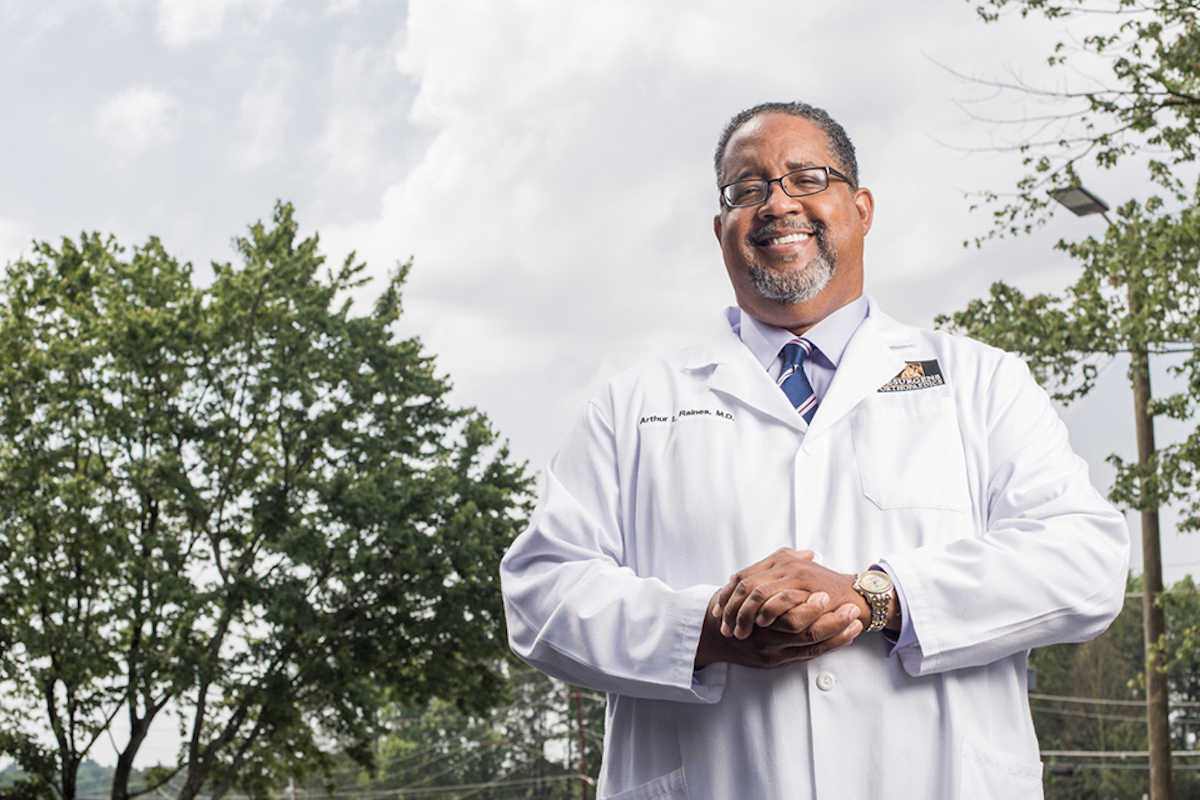Dr. Art Raines, an orthopedic surgeon in Atlanta. Featured Image
[dropcap]Aaron[/dropcap] Doctor, a bright and ambitious young African-American man, grew up in a black community in South Carolina’s Lowcountry, but he was 21 years old the first time he met a black doctor, a man whose wife was also a physician. [mc4wp_form id=”6042″]
“I didn’t think black people could be doctors,” said Doctor, 29.
Doctor, as his name aptly suggests, is a fourth-year student at the Morehouse School of Medicine who wants to become a physician specializing in women’s health in underserved communities. The number of people who look like Doctor pursuing careers as physicians across the nation, though, is declining, which is creating a public health problem.
A 2015 Association of Medical Colleges study shows that between 1978 and 2015, the number of black males entering medical school dropped from 1,410 to 1,337, even as the number of black men earning college degrees rose.
During those years, the numbers of Asian and Latino male doctors rose.
The year 1978 also served as a 36-year high in the number of African-American, 542 men to graduate from medical school. Only 515 graduated in 2014. Although African-American men make up six percent of the country’s population, they make up fewer than two percent of the nation’s 18,000 medical school students — 257.

